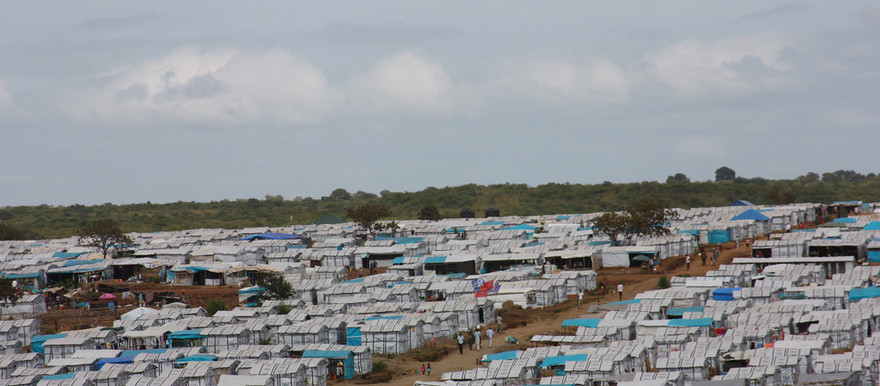The internally displaced persons (IDPs) sheltering in the UN Protection of Civilian site (POC) in Juba are calling on the World Food Program (WFP) not to stop food distribution in the camp.
Early this month, the World Food Programme announced plans to suspend food assistance for more than 100,000 displaced people in parts of South Sudan for three months starting October as part of what it calls a prioritization exercise driven by funding shortages this year.
WFP said the suspension will affect people displaced in camps in Wau, Juba, and Bor. Juba IDPs have however called on the WFP to continue providing them with food.
“We want WFP to continue food distribution to us, and if WFP says it can no longer give us food, let them get us land for cultivation within the nearby proximity at the Juba PoC. And if there is no land for cultivation, let them take us to our homeland so we go and die from there,” Bidi Ruot Gai Juba, UN PoC3 Chairman said.
Ruot says they have written a petition to the UN and now plan to petition President Salva Kiir to intervene.
"We have had a meeting at the Checkpoint with the UN Police and South Sudan Police and we were able to write a petition to RRC and ACTED, and now we are going ahead to meet President Salva Kiir," he added.
Bor Gai, a Youth Forum leader in the Juba POC says the plan to cut food assistance by the World Food Program will aggravate the food crisis in the PoC.
“This is a concern to everyone in the camp, and mostly it affects the youth in one way or another because if there is no food, there is no water, the sanitation is not good there will be a lot of problems that will come with it. As we speak now, there are a lot of theft and rape cases outside the camp and this comes as a result of our girls and mothers fetching water from outside,” he said.
Deng Nhial Chuol another internally displaced person in the POC in Juba says, “Here in the IDP camp people are facing a lot of challenges, and among these challenges is the issue of food which we are not going to receive for the next three months based on the WFP which says that there will be no food next month (October). This is the last month for food distribution in the Juba POC."
WFP says it is prioritizing its emergency, lifesaving food assistance in 10 hard-to-reach counties where people are in emergency or catastrophic levels of hunger including Pibor, Akobo, Tonj North, Tonj South, Tonj East, Aweil South, Bor South, Twic East, Duk and Ayod.
Mothers and children between six months and two years of age who live in camps will continue to receive nutrition assistance for the prevention and treatment of malnutrition, WFP assured.
According to WFP, food insecurity in South Sudan has increased in the last few years and currently affects more than 60 percent of the country’s population.




